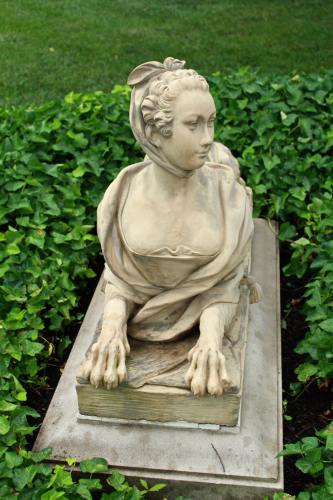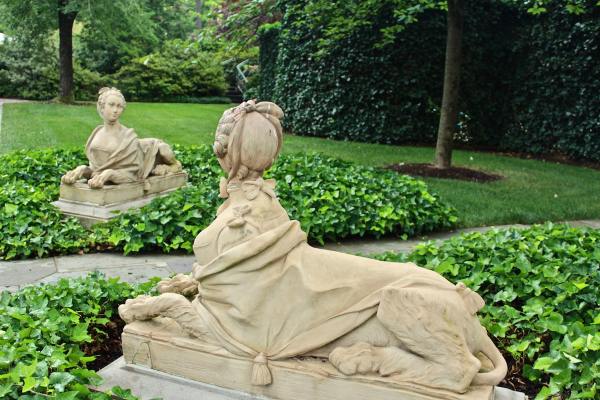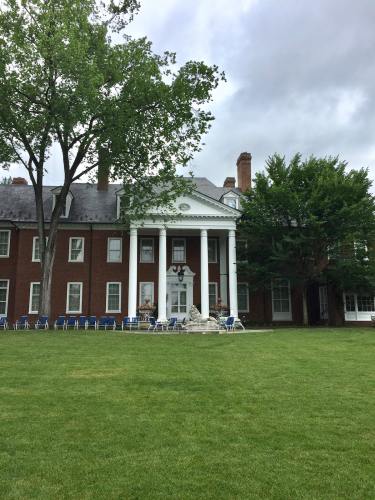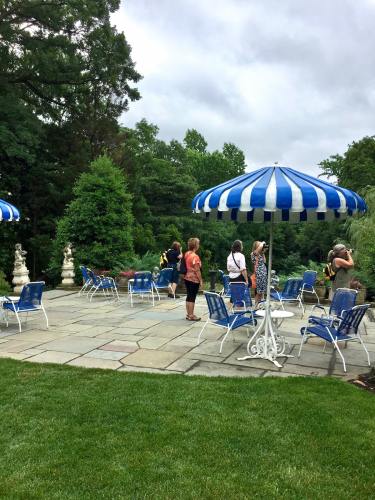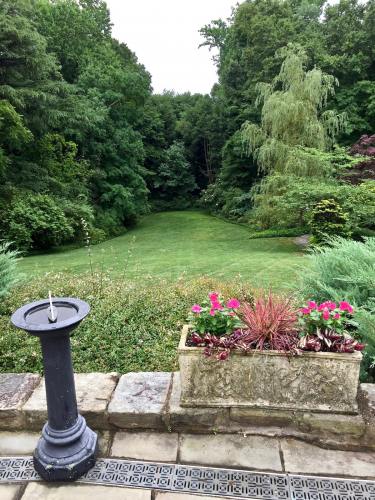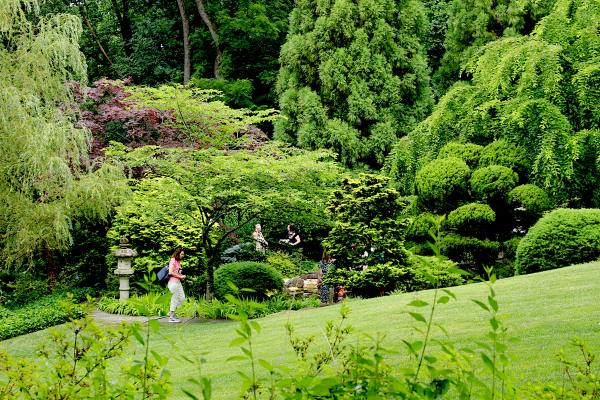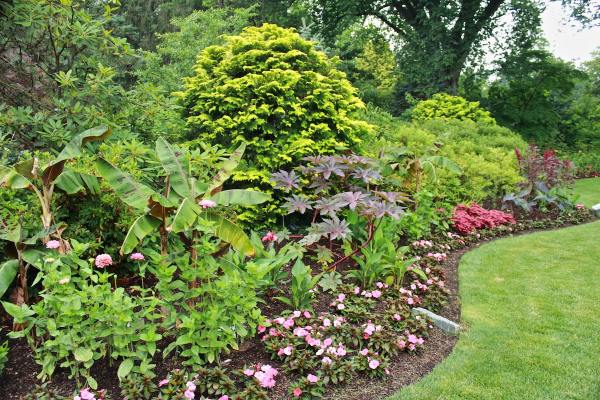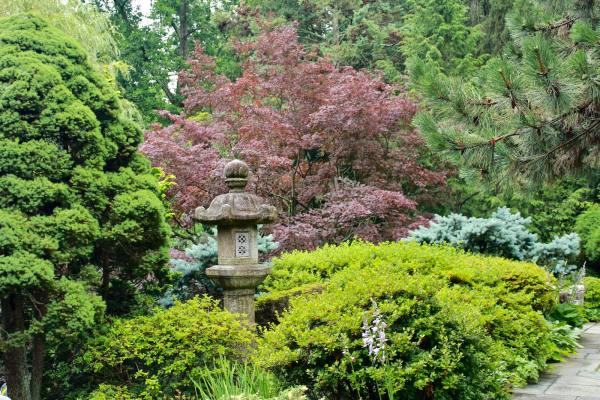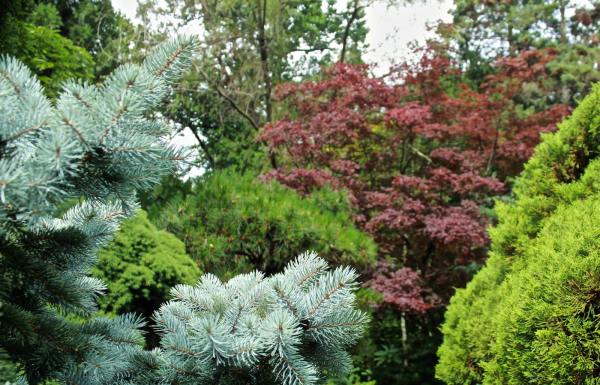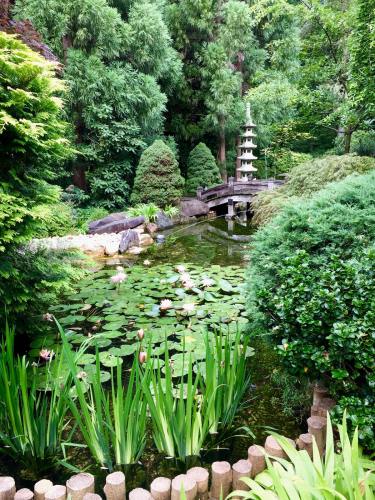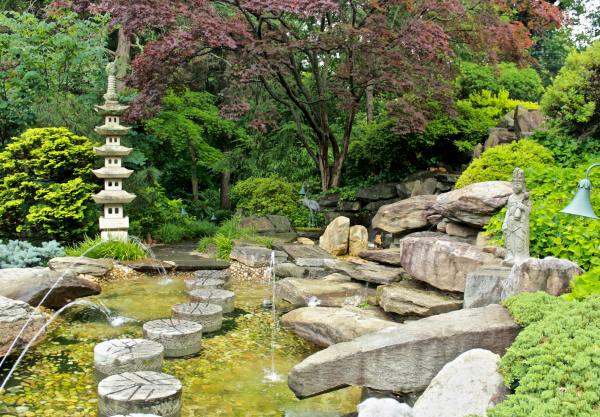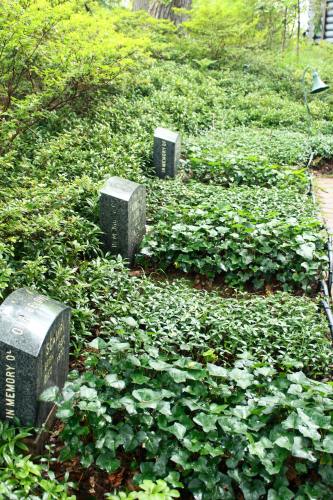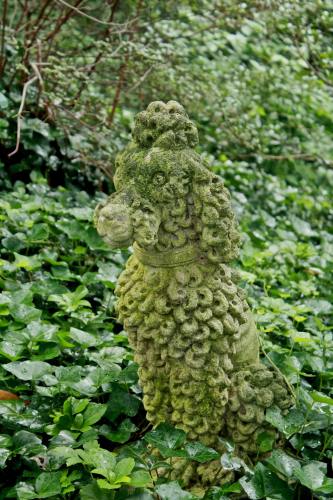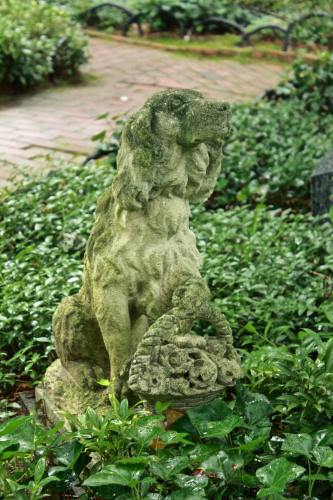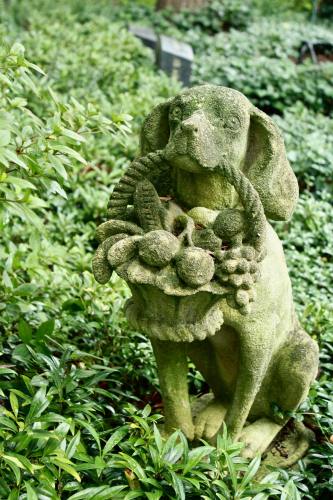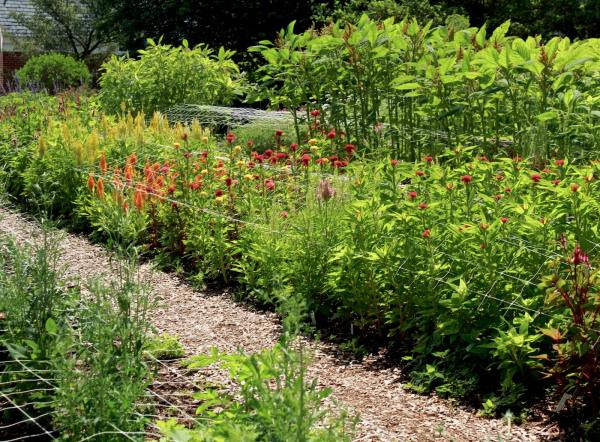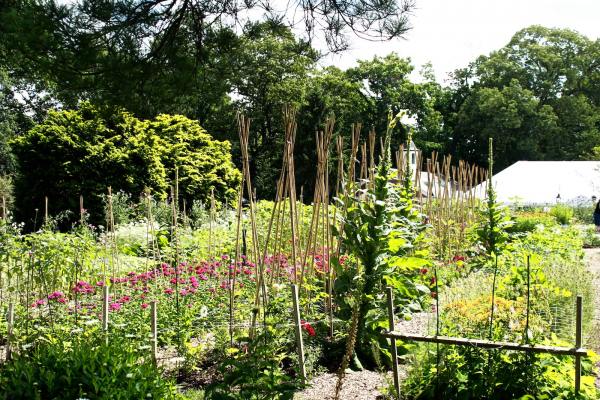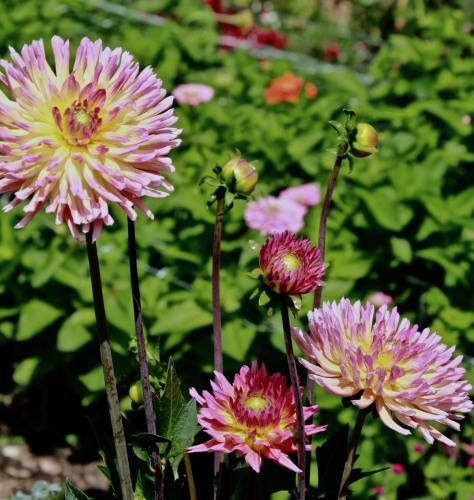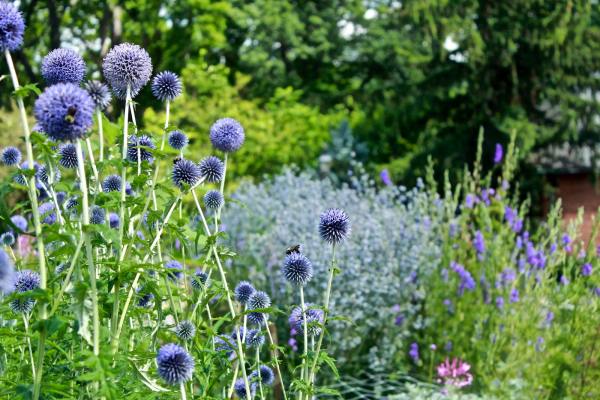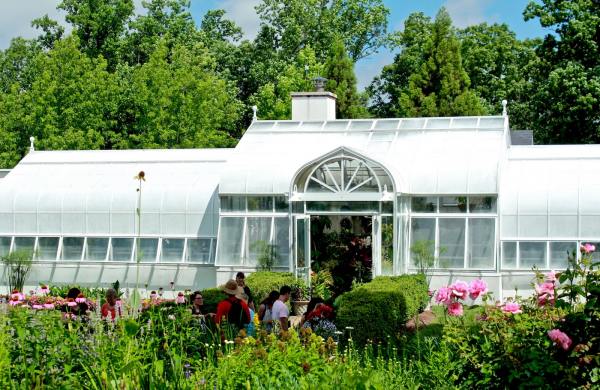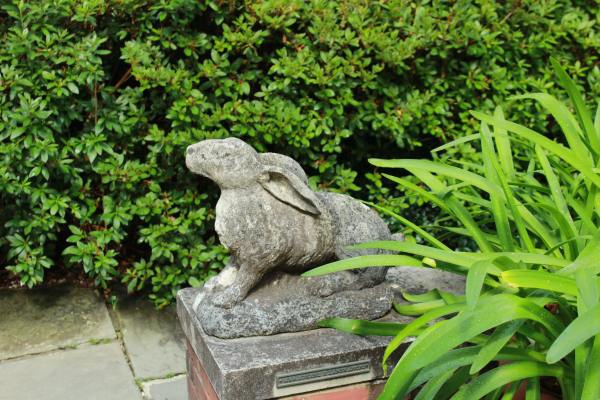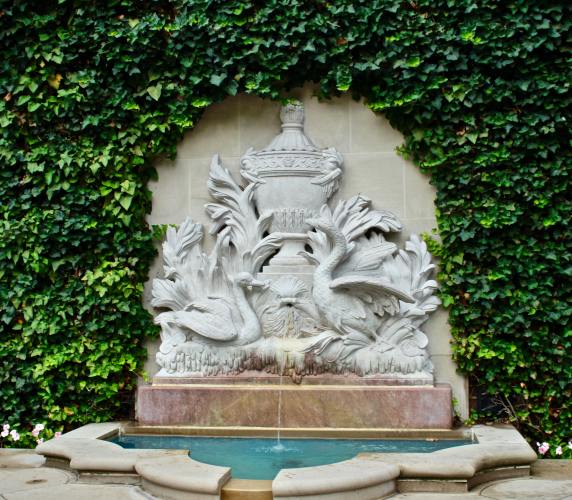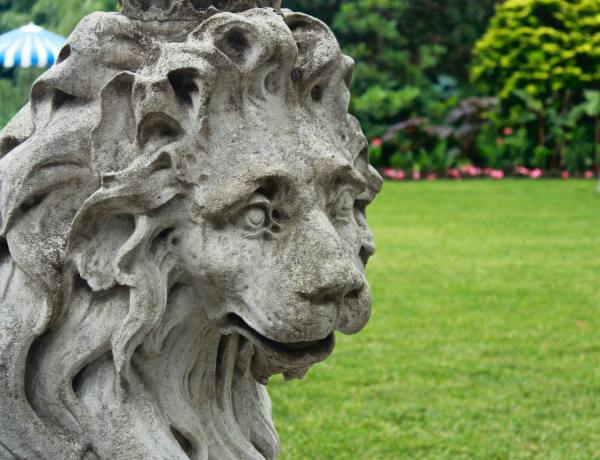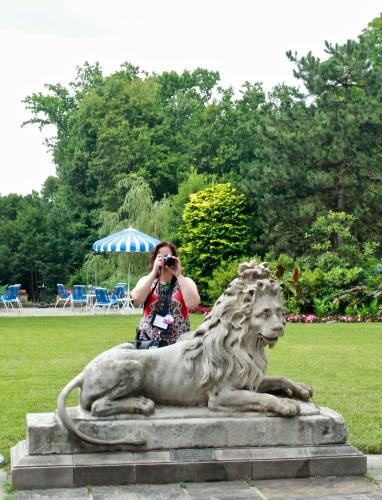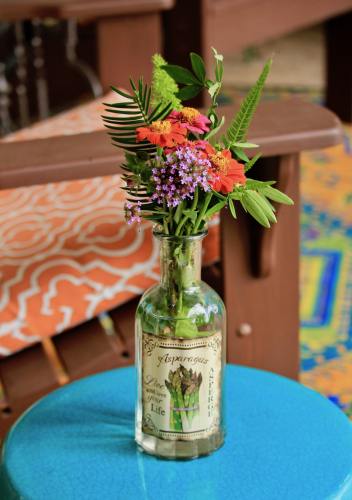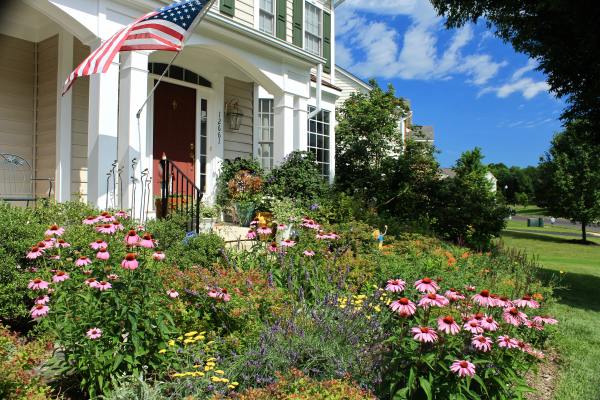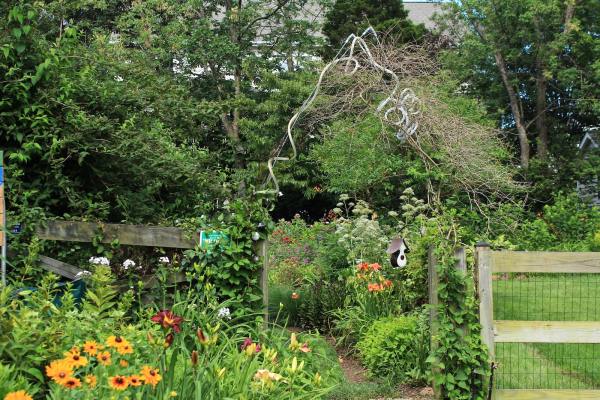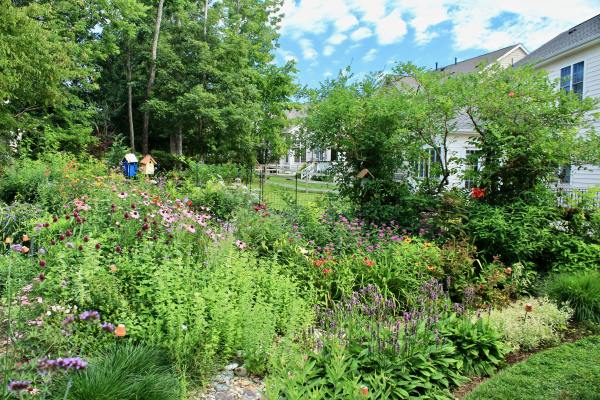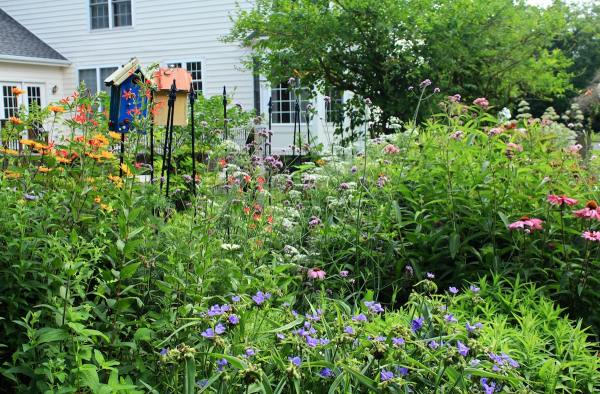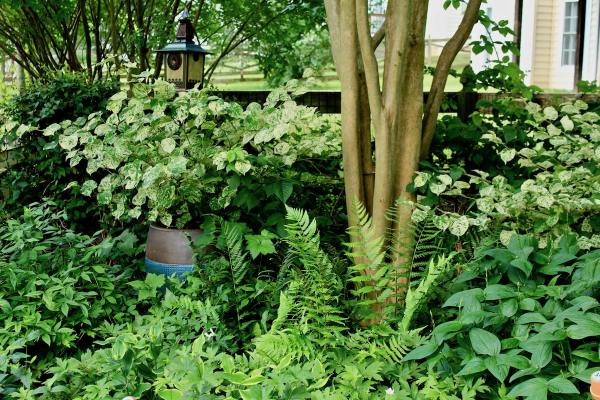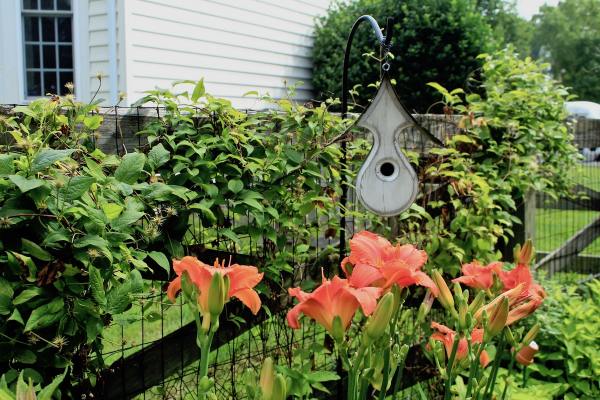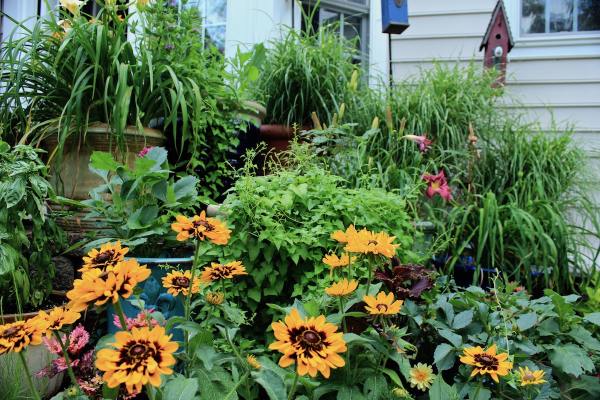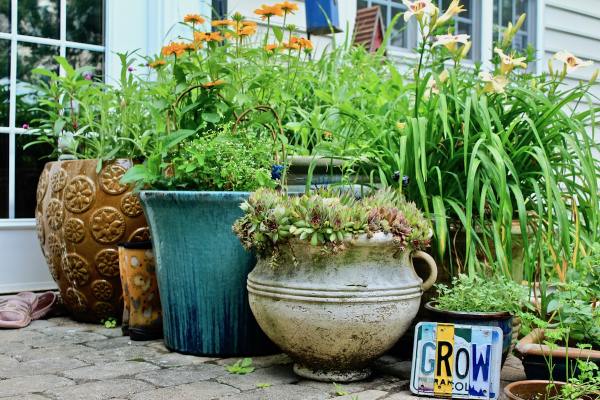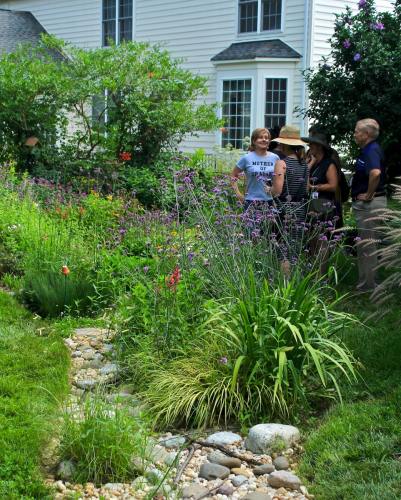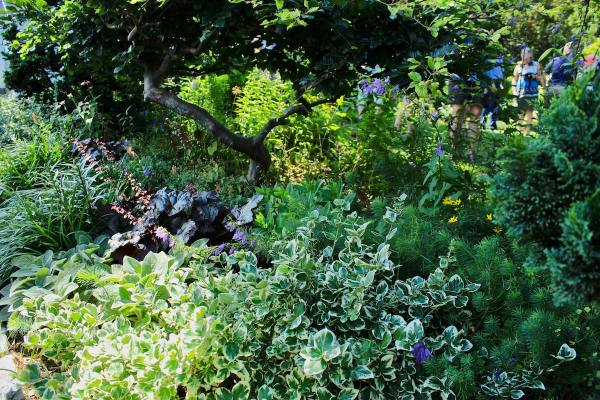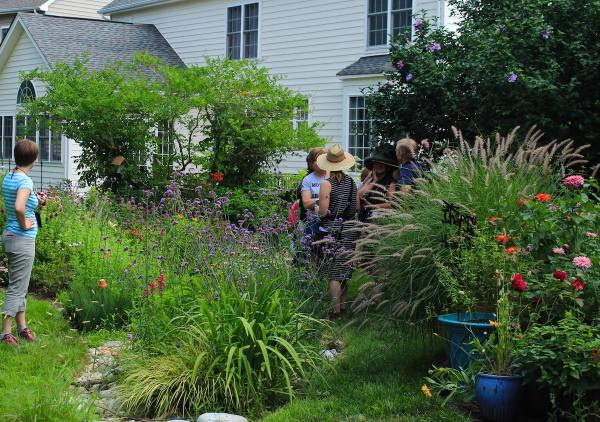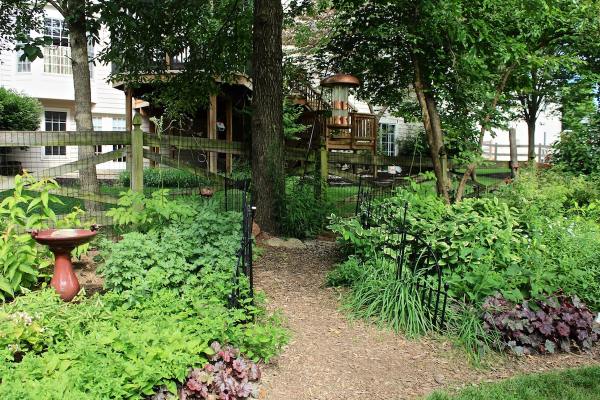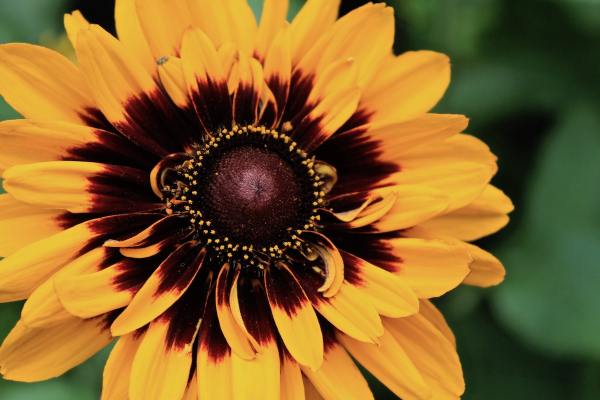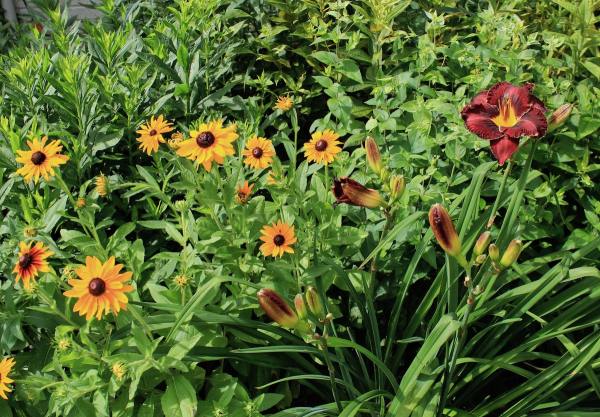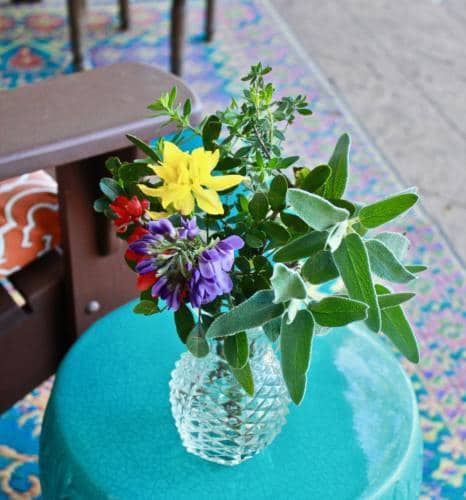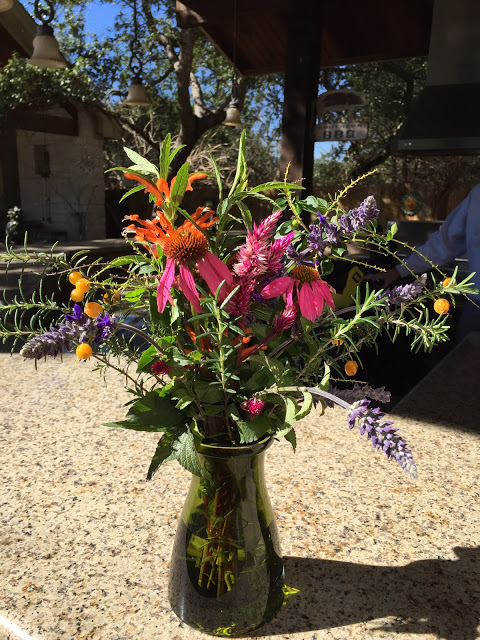Easy beautiful flower bouquets from your own garden
If Covid-19 is keeping you at home, why not bring your garden in with you? Even if you only have a small yard, chances are you have everything you need to bring a beautiful, garden-fresh bouquet into your home. 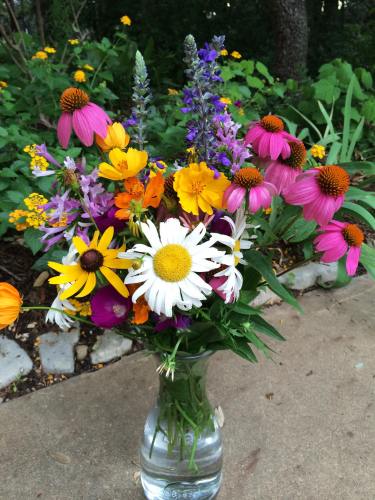
You may think you need daisies or roses or other traditional cutting flowers to create a floral arrangement. You don’t. Have you thought about adding in lantana or salvia or branches from your shrubs? Landscape shrubs with beautiful stems – whether they bloom or not – can stand alone or provide structure, color, and texture to a vase full of flowers.
I used to have a very small bed that I called the cutting garden. In the spring it was full of bluebonnets, larkspur, gladiolas, clematis and roses. Later, it was overflowing with orange cosmos, lion’s tail and zinnias. But you don’t have to have a special cutting garden to cut flowers to bring inside.
When I wander outside to cut flowers for a vase, I walk through the entire garden. Nothing is off limits as I add pretty blooms to my bucket. One of my favorite additions, the perennial, Esperanza, also commonly known as Yellow Bells, (Tecoma stans) adds a hot pop of color with an arching form and soft foliage in any kind of vase. Since they bloom from late spring into fall, I always have something yellow with which to make an arrangement. I also have several colors of lantana throughout the garden, so I never have a shortage of filler.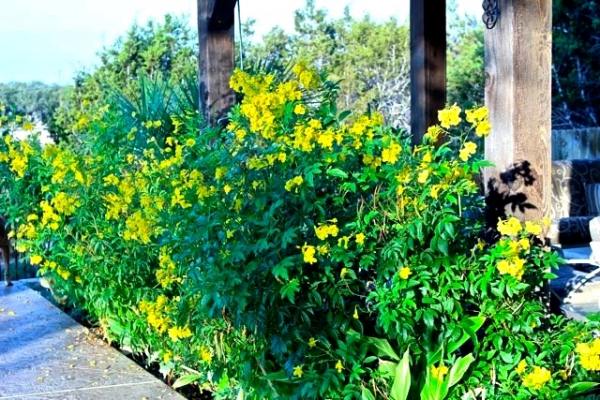
Don’t forget about your vegetable or herb garden plants, either. Rosemary, parsley, sage and basil are regular additions to my vases. They add beautiful foliage and make the house smell wonderful. You might even forego a fruit or vegetable in favor of the beautiful bloom it produces. I always let my artichokes bloom because I’m smitten with the flowers. I just buy my artichokes at the grocery store. Consider using the lovely blooms of okra or onions the next time you create a bouquet.
Landscape plants for floral arrangements
Indigo spires salvia
Yellow bells
Lion’s Tail
Mexican oregano
Salvia Greggii
Verbena
Pride of Barbados
Crape Myrtle
Lantana
Rosemary
Loropetalum
Japanese Quince
Abelia
Bi-color iris
Native grasses
Pentas
Ferns
Artemsia
Oleander
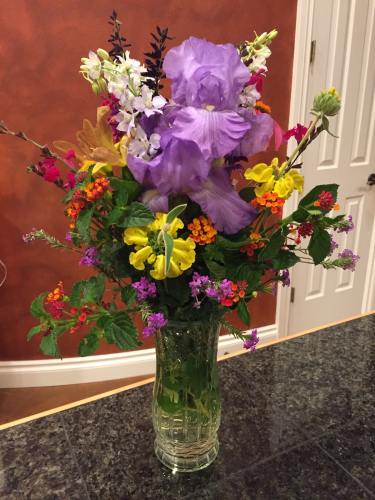 Almost anything in your garden can be worked into a bouquet. Now that you’ve identified some of your own pretty garden flowers that you’d like to put into a vase, how do you start?
Almost anything in your garden can be worked into a bouquet. Now that you’ve identified some of your own pretty garden flowers that you’d like to put into a vase, how do you start?
First, cut your flowers and foliage early or late in the day, when it’s cooler and their stems are firm and full of water. In the heat of the day, flowers become dehydrated. Take a bucket of water out into the garden with you, so you can drop them straight into the water after you’ve cut them.
Plants with multiple buds or bloom spikes, like Indigo or mystic spires salvias or larkspur, should have at least one bud open when you cut to ensure that the remainder will open once in your vase. Flowers that grow on individual stems should be cut when fully open.
Use clean, sharp tools like a small kitchen knife or floral snips to cut delicate stems and pruners to cut woodier stalks. Don’t use scissors – they will crush the stem and prevent proper water intake. Cut stems as long as possible to give yourself more options when putting together the arrangement. You can always make them shorter later. Make cuts at a 45-degree angle to allow as much space on the stem to drink in the water. For woody stems, you can also split the bottom inch of the stem with a knife to increase their ability to take in more water.
Removing most of the leaves from the stems, particularly below the water level, encourages water absorption and keeps the vase from being too crowded. It also helps retard bacterial growth that shortens the life of the flowers and makes the water smelly and cloudy.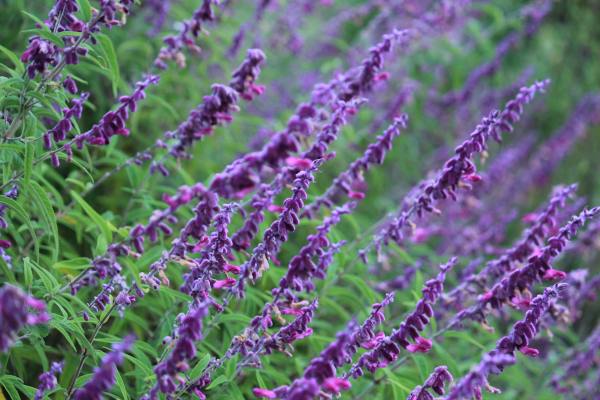
Now it’s time to decide how you want to arrange the flowers and in which container they’ll look best.
Any water-tight vessel will work. Small cream pitchers or mason jars work well with small, posy-style bouquets. Tall, columnar vases look best with a few long stems or flowers or branches. Galvanized buckets or ornamental watering cans pair nicely with a wild arrangement of more rustic flowers. A vase that flares out at the top will allow arching stems to droop gracefully from the bouquet. I sometimes tie raffia or other ribbon around the vase, and I’ve also added sliced lemons to line the inside of a glass vase.
Just as with planters, for most floral arrangements, you’ll want to include thrillers, spillers and fillers. The height of your flowers should equal about one and a half times the height of the container. Start by adding some stems of your filler – these could be foliage or more delicate or smaller-sized blooms. Then add your focal point. This could be a single bloom or 3 to 5 blooms, depending on the size of your vase. (Using odd numbers of blooms will be most visually appealing.) These might be the largest or most unique blooms in your arrangement, and should be taller than the filler. Then add your accents – smaller than your showstopper, in complementary colors and textures. You can choose to go with a monochromatic collection of blooms, or vivid, contrasting colors.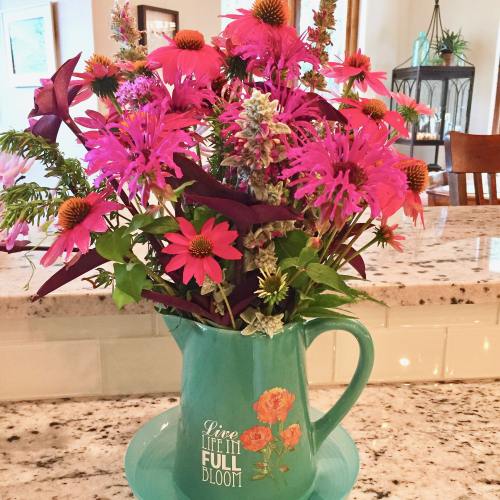
I sometimes find it’s easier for me to “build” my arrangement in my hand, starting with the focal point and turning the collection with each addition and lowering the height of the stems as I work my way around. There’s no right or wrong way; these are just tips to help you create a beautiful balanced arrangement. You can also make dramatic, exotic asymmetrical bouquets, tightly combined cube or fishbowl vases, or floral foam arrangements for shorter centerpieces.
The best way to ensure you get the longest life out of your arrangement is to add a ready-made preservative like Floral Life. These contain the right amounts of nutrition, cleanser and citric acid. Change the water daily and remove spent blooms. You can also cut the stems again to help lengthen bloom life.

